15 Daily Habits to Optimize Energy
You can file the topic of circadian rhythm under “not sexy but foundational.” We need regulated rhythms for proper energy levels, a good mood, quality sleep, regulated hormones – and more!
In the days before lightbulbs & blue screens were invented, people operated on a schedule that was in sync with daylight hours/with the 24-hour pattern of our days. Up with the sun, work during the day, then lights out after the sun set.
As technology has evolved, so has our ability to work against our body’s natural clocks. Staying up and watching a bright blue screen, quickly traveling between time zones, and working nightshifts are all new as of the past 100ish years. We are now largely operating on a mismatch between the rhythm in which our bodies were designed to operate and our external environment.
For sure a lot of good has come out of evolving technology, but its easy to forget that this is not how our bodies were meant to operate. (Dis-ease and feeling poorly result quickly when we try to force our bodies to adapt to an environment that doesn’t suit it well.)
With a few changes to our daily habits and patterns, we can restore more of our body’s natural clocks (or circadian rhythm) and reap benefits ranging from better energy to regulated hormones. Before getting into these specific tips, let’s break down what the circadian rhythm actually is.
What is the circadian rhythm?
Our circadian rhythm is the 24 hour pattern that regulates our behavior and all living cells in our body. It’s essentially how your body is synced with your environment, and it has implications for every bodily function we have. To name a few:
Sleep/wake cycles
Digestive system
Appetite
Immune system
Integrity of the gut lining (aka "leaky gut")
Blood pressure
Hormone secretions
Blood sugar control
Regular circadian rhythms promote the healthy operating of these systems, but the opposite is also true. Disruptions in these rhythms can be detrimental to our mental and physical health both short- and long-term and can lead to conditions like metabolic syndrome and cardiovascular disease down the road. The link between poor sleep (defined as less than 7 hrs. per night) and increased insulin resistance is well researched.
Different hormones peak at different times of day to support our optimal functioning. For example, cortisol peaks in the morning to give us energy, while melatonin peaks at night to help us sleep. Getting our bodies synced with our environments allows us to lean in to these natural spikes so that it’s easier to have energy during the day and fall asleep at nighttime.
Some common reasons for disrupted circadian rhythms:
Shift work
Traveling between time zones
Staying up too late or not consistently sleeping enough
Eating in an erratic pattern
Blue screens too close to bedtime
Not moving or seeing light first thing in the morning
·
Now that we know what circadian rhythm is and why it’s important to keep it regulated, let’s dive into all the ways we can support it, with and without extra tools.
Supporting without tools
Sleep
Go to sleep and wake up around the same time every day, as close to 10 AM – 6 PM as you can
Lower the thermostat at night – keeping it 60-68 degrees is optimal for good sleep
Darken the room as much as possible for sleep
Light exposure
Get bright light in your eyes within 30 minutes of waking up. Get outside in the morning if you can
Try to minimize use of sunglasses
See the sunlight throughout the day. Look out of a window, or take a quick 5-10 minute break outside so that your body is clued in to what time of day it is
Dim the lights at home starting around 2 hours before bed
If using devices like phones or computers within 2 hours of bed, change the settings to automatically switch to warmer light starting around 8 PM (you can change this in your device settings, or download free software like f.lux)
Movement, Food, and Routine
Eat meals around the same time each day
Keep close to the same schedule on the weekends
Getting movement in the morning. I will forever say that getting movement at any point is better than nothing. But if it works for your schedule, morning is a biologically ideal time for it
Having a nighttime routine, even a simple one like reading a book for a few minutes before bed- helps give a signal that the body is getting ready for bed
Tart cherry juice & walnuts promote melatonin production
Getting fancier – some helpful gadgets to support your CR
Some seasons and locations make it impossible to see natural light first thing in the morning. I love using the Verilux Happy Light as bright light exposure. Turn it on while getting ready, brushing your teeth, eating breakfast, or sitting down to work and leave it on for 20 minutes if you can
Blue light-blocking glasses. Great if you are watching TV or using a computer in the 2 hrs. before bedtime
If you run hot when you sleep and a fan or thermostat shift doesn’t cut it, products like the Chilipad that go above your mattress can really help to keep you truly cool at night
As you’ve noticed, a theme is to keep things pretty dim and chill before bed. And with good reason! Melatonin starts to naturally increase around 8 pm, and blue light (like from phones, computers, etc.) directly blocks the production of melatonin.
Shifting your body clock may seem like a small and insignificant piece to support overall wellbeing, but it’s a foundation without which the sexier stuff (gut health, liver detox, etc.) won’t be effective. Implement one change at a time, and you’ll notice how a few small things can make a drastic difference in your energy!

